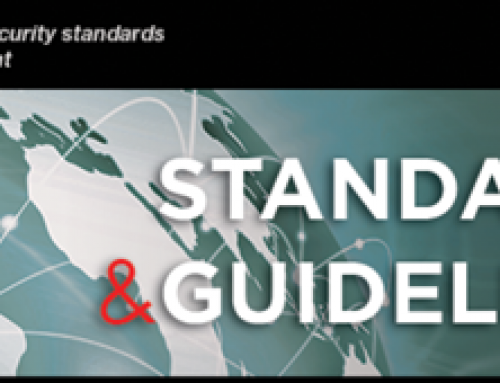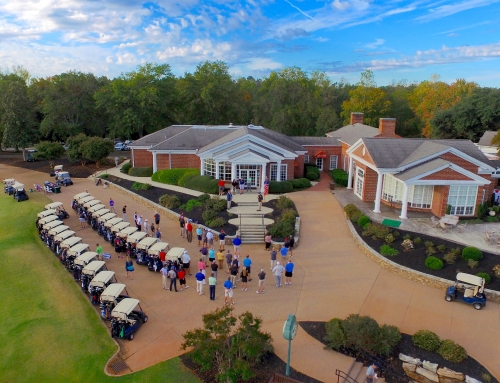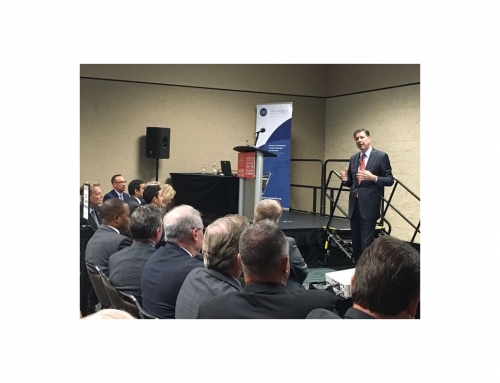Chapter Meeting Meal was Sponsored by:
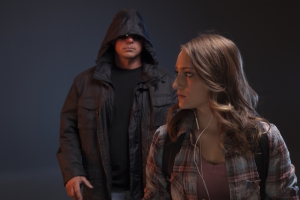
Personal Security Awareness:
Do you prepare yourself for bad things to happen? As you live your life are you aware of your surroundings and the possibility for bad people to affect your life or for the possibility of bad things to happen to others around you? Contrary to what you may think, you are not able to control 100% of everything that may affect your daily activities. Most people act and live like the next moment is guaranteed which is “liberating” and allows us to be able to devote our attention to our phones, work load, next meal, next meeting etc… Don’t be surprised, be prepared and be able to act with a plan to mitigate the “Bad” things that may happen to you and the bad things that are happening now in our communities, our country and across the globe. Act and plan like it is going to happen to you! Be prepared! I don’t know about you but I don’t want my future to depend on others having a “plan” to protect me and my family.
Understand Situational Awareness: S/A
Create “360” Threat Analysis
Become a Hard Target / Deflection
Relevance: Your safety, Your Loved ones’ safety!
Always listen to your “instincts” or “gut feeling.” If something does not feel right it usually isn’t. Don’t worry about what a total stranger thinks of you. If you feel your safety is at stake it is fine to be “rude.” Take time to look around and quickly take in information as you transition from one place to another. Appearing confident and aware can remove you from many criminal’s victim lists! Knowledge and planning is a powerful combination against threats to your security!
- Even when in a hurry, do you stop to look at your surroundings?.
- On the streets, do you walk confidently with your head up?
- Do you walk with your head down and hands buried deep in your pockets?
- Do you wear clothes that restrict your movement?
- Do you carry a larger handbag than necessary? Ladies?
- Do you carry “throw down” money when out on the town?
- If you carry a money clip, do you keep small bills on the outside?
- How do you deal with people on the streets that approach you for:
- Directions?
- Ask you for help?
- Verbally harass you?
- Do you overload your arms with packages or groceries?
- Do you wait until your gas tank is on empty before you fill up?
- If you have to go into a convenience store at night do you look around before going
inside? Do you stay out if you don’t see a clerk? - Do you get on the Swamp Rabbit Trail at dusk just prior to sundown?
- When walking to your car, do you have your keys out?
- Do you lock the car doors as soon as you get in?
- Do you lock the doors as soon as you get out?
- Do the car doors auto-unlock when you put the car in park?
- Do you avoid parking next to buildings, dumpsters, large trucks, vans or other obstacles
that limit your visibility? - Do you know the location of the closest:
- Police Station
- Fire Station
- ER/Hospital
- If you were being followed or thought you were, would you think to go to a safe location
rather than driving to your home?
Good Reading Material: “Gift Of Fear” by Gavin de Becker
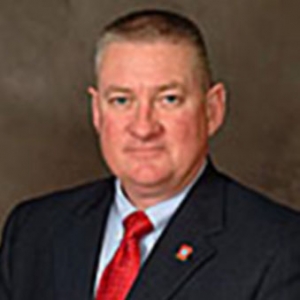 David Harrison is a Certified Protection Professional (CPP), Certified in Homeland Security (CHS-lll), CPD designation In Crime Prevention Through Environmental Design (CPTED), IAHSS-l, a certified T.A.C.T. Trainer, CPI Certified IN Non Violent Crisis Intervention, DOD Haz-Mat Technician and hold various DOD and civilian training certificates. He performed the role of district manager (4,500- 5,000 plus billable hours per week) for over 12 years and have moved into a role where that experience will benefit our clients and our company in the areas of risk analysis/security surveys, client staff training, and company-wide officer training. Areas of training include active shooter, workplace violence, threat assessment, personal security strategies, crisis plan development etc…
David Harrison is a Certified Protection Professional (CPP), Certified in Homeland Security (CHS-lll), CPD designation In Crime Prevention Through Environmental Design (CPTED), IAHSS-l, a certified T.A.C.T. Trainer, CPI Certified IN Non Violent Crisis Intervention, DOD Haz-Mat Technician and hold various DOD and civilian training certificates. He performed the role of district manager (4,500- 5,000 plus billable hours per week) for over 12 years and have moved into a role where that experience will benefit our clients and our company in the areas of risk analysis/security surveys, client staff training, and company-wide officer training. Areas of training include active shooter, workplace violence, threat assessment, personal security strategies, crisis plan development etc…
Conducting security risk assessments and security surveys is another component of David’s role. He has performed surveys across our entire spectrum of clients. He draws on my military, security, and business experience to conduct a detailed analysis of current security protocols and present practical (Cost Effective) recommendations for security enhancements where needed. He also lead a team of trained professionals in high risk terminations (Pre-termination through the actual separation of employment) and is a member of the company executive protection team. He is certified in Crime Prevention Through Environmental Design (CPTED) through the National Institute of Crime Prevention (NICP)




